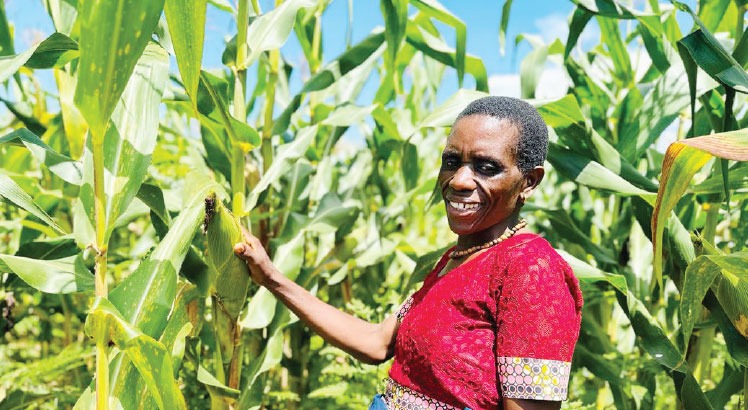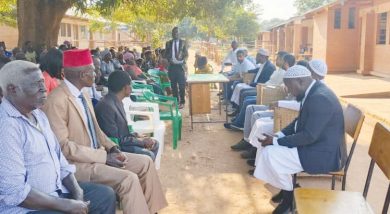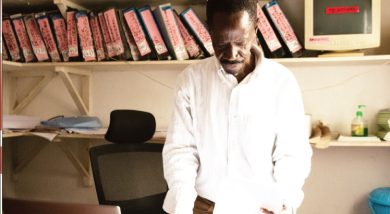Inclusion breaking barriers
Esther Kumwenda’s story is one of resilience and transformation.
Once dependent on her relatives due to a physical disability, she has emerged as a shining example of what can be achieved when societal barriers are removed and inclusivity is prioritised.
Her life changed dramatically when she joined the Mafinga Irrigation Scheme in Chitipa, which has not only empowered her but also transformed her community’s perception of disability.
Her story begins in a place of struggle. Negative attitudes and environmental barriers kept her from achieving independence.

But her determination and the opportunities provided by the irrigation scheme jolted her to break free.
Today, the farmer is proud of her achievements and optimistic about the future.
“In last year’s winter, I harvested 15 bags of maize from a quarter-acre field,” Kumwenda says. “In the current rain-fed season, I expect even better yields.”
Her work is part of national efforts to achieve Sustainable Development Goal number two: Ending hunger, achieving food security, improving nutrition and promoting sustainable agriculture by 2030.
Her healthy maize is nurtured with Mbeya fertiliser, a mix of maize husks, animal manure, ash and chemical fertilisers.
The green crop demonstrates Kumwenda’s hard work and ingenuity.
Her anticipated harvest of over 200 bags from a four-acre plot will contribute to her community’s food security.
Another inspiring story is that of Lucy Mtambo, who supports her family.
Her homestead includes a sister with physical disability and a mother with visual impairment.
At 47, Mtambo was involved with the Programme for Rural Irrigation Development (Pride) project which provided her with 10 chickens.
These chickens have multiplied and now produce manure for Mbeya fertiliser, boosting nutrients in her three-acre maize field.
“After receiving the chickens, I sold some to buy two bags of fertiliser,” Mtambo explains. “With this, I expect to harvest 180 bags of maize.”
This aligns with SDG eight, which promotes inclusive and sustainable economic growth.
Their achievements also support the first pillar of the Malawi 2063 vision: agricultural productivity and commercialisation.
Agriculture is the lifeblood of Malawi’s economy and employs about 80 percent of the country’s workforce.
The exploits of Kumwenda and Mtambo highlight the critical role agriculture plays in sustainable development.
Research shows that disability can lead to poverty and poverty can exacerbate the challenges of disability.
Development initiatives must ensure no one is left behind.
The International Labour Organisation is implementing the Sparking Disability Inclusion in Rural Transformation Programme (Spark), funded by the International Fund for Agriculture Development (Ifad).
Spark promotes disability inclusion in government programmes, identifying and supporting individuals like Kumwenda and Mtambo to participate in Ifad-funded projects.
Pride project, supported by the $230 000 Spark initiative, focuses on rural irrigation and development, establishing schemes like Mafinga in Chisenga.
It distributes small livestock and sets up banana farming for persons with disabilities, fostering economic empowerment and self-reliance.
Federation of Disability Organisations in Malawi programme manager Ethel Kachala Chibwana emphasises the significance of these inclusive initiatives. “People need to understand that persons with disabilities are not beggars. Given a conducive environment, society will benefit from their capacities,” she asserts.
Chibwana urges Malawians to realise that persons with disabilities can achieve self-sufficiency if the nation creates an enabling environment for everyone to benefit from their capacities.
Spark project officer Vincent Kavala stresses a rights-based approach to inclusion.
He explains: “We target all people with any impairment to remove barriers and change societal attitudes.
“We are thrilled that over 100 persons with disabilities in Chitipa District are participating in various agricultural activities and economic empowerment initiatives.”
Kavala, while highlighting the project’s inclusive approach, states: “Spark targets all people with any type of impairment, focusing on a rights-based approach to inclusion.”
Kumwenda and Mtambo personify the transformative power of inclusivity.
By breaking down barriers and providing opportunities, projects unlock the potential of persons with disabilities, turning them into active contributors to society.
As these women continue to thrive, they not only secure their futures but also pave the way for a more inclusive and prosperous Malawi.






6cokr6
scammer